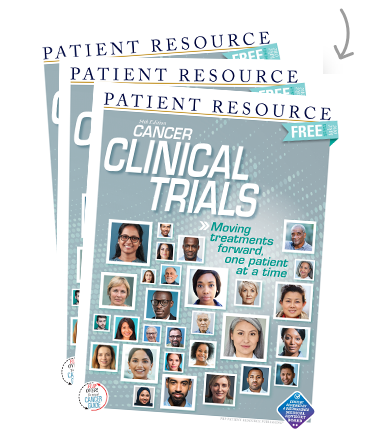Clinical Trials
Myths Vs. Facts
The internet is often the first-place people go to research their type of cancer. Though it does contain a lot of information, not all of it is helpful and some may not even be true. It can be challenging to know where to go and whom to trust. Myths can easily influence your decision and prevent you from exploring this potential treatment option. Becoming an educated patient empowers you to get the facts and make the best choices for you.
The first place to ask about cancer clinical trial information should be your doctor and health care team. When you know the facts, you’ll be more informed and confident as you talk with your doctor and loved ones about joining a clinical trial.
Only you can decide whether to be involved in a clinical trial. Do your research, consult with your doctor, and talk to the medical team that will manage your care during the clinical trial. Do not let misinformation prevent you from getting the best available information and care.
In this article, we bust some of the most common myths surrounding clinical trials to provide the information you need to feel comfortable discussing this potential treatment option with your doctor.
Following are some common myths about cancer clinical trials and the facts that dispel them.
MYTH: Drug therapies used in cancer clinical trials are unapproved and therefore unsafe.
FACT: Trials are designed with strict safety measures in place that were established and are enforced by the U.S. Food and Drug Administration. While many trials are focused on the development of new treatments, the majority of cancer clinical trials include treatments that are already approved, sometimes alone and sometimes in combination with new therapies.
MYTH: I can’t participate if I don’t live near a city with a large cancer center.
FACT: Clinical trials take place in nationally known cancer centers in major cities, in university medical centers, regional hospitals and even oncologists’ offices. And, thanks to advances in technology, many trials today are using telehealth so you don’t have to travel for appointments or sign the Informed Consent form in person.
MYTH: Once I start the trial, I can’t change my mind.
FACT: Participation is always voluntary, even after the trial has started. You can withdraw at any time and for any reason.
MYTH: I can only join a trial if I have no other treatment options.
FACT: It is common for many people to feel this way, but trials today are open to patients at every stage. Depending on the diagnosis, a clinical trial may be considered as a first-line treatment.
MYTH: I’m afraid I’ll receive a placebo instead of treatment.
FACT: Placebos are rarely used in cancer clinical trials, but combination studies frequently use a placebo in the control arm and are done with the full knowledge of the participants. When placebos are used, they are used in combination with the current standard of care. Trials divide participants into separate groups that compare different treatments. At the time of the trial, it is not known which treatment is best.



